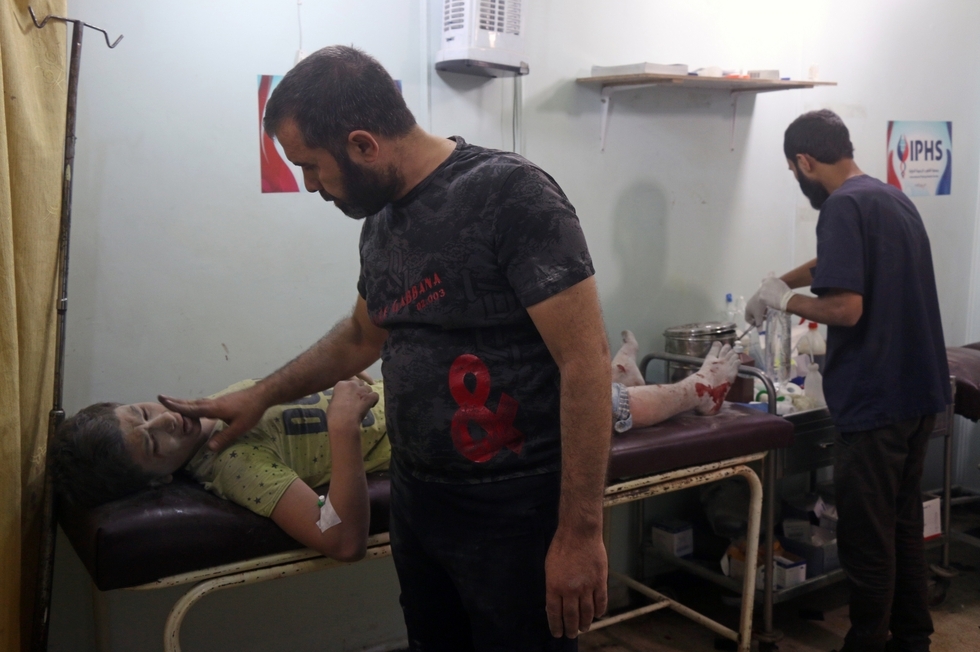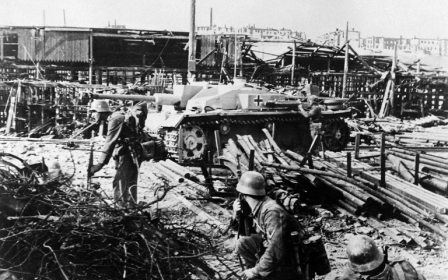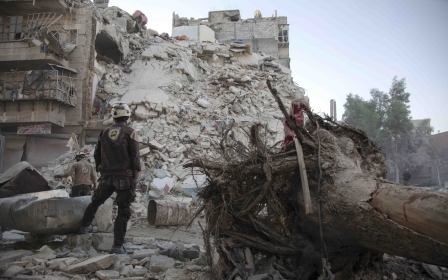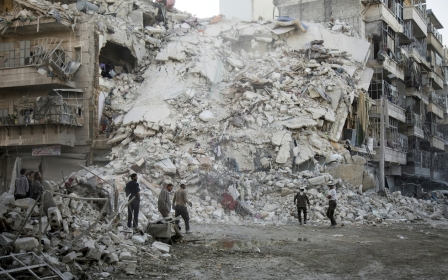Rebels reject withdrawal from Aleppo after Russia halts bombing

Syrian rebels said on Tuesday that they rejected any withdrawal of fighters from Aleppo after Russia announced a halt in air raids which it said was designed to allow rebels to leave and to separate moderate fighters from militants.
"The factions completely reject any exit - this is surrender," said Zakaria Malahifji, the political officer of an Aleppo-based rebel group.
The Russian and Syrian air forces halted all air strikes on Aleppo on Tuesday, bringing forward a planned pause in bombing designed to allow rebels and civilians to leave the city, the Russian defence minister said.
Al-Farouk Abu Bakr, an Aleppo commander in the powerful Islamist group Ahrar al-Sham, said the rebels would fight on.
"When we took up arms at the start of the revolution to defend our abandoned people we promised God that we would not lay them down until the downfall of this criminal regime," he said, referring to President Bashar al-Assad's government.
"There are no terrorists in Aleppo," he said, speaking from the city. Rebels in eastern Aleppo have consistently said that rebel groups linked to al-Qaeda or inspired by it have no real presence in the opposition-held part of the city.
Russia is asking countries that have backed the rebels to help resolve the conflict in Syria by pressing militant fighters to leave Aleppo after Moscow ceased air strikes on rebel-held areas in a goodwill gesture, Kremlin spokesman Dmitry Peskov said on Tuesday.
"Russia now expects its partners... to take the baton and assist this humanitarian operation, to make sure the bandits leave Aleppo, especially its eastern part, in order for a real process of separation of the so-called moderate opposition from terrorist groups to begin," he told a conference call with reporters.
Despite the bombing pause, the United Nations has said it cannot use the Aleppo ceasefire without security guarantees from all sides.
UN humanitarian spokesman Jens Laerke said on Tuesday that the UN did not have the security guarantees it requires to carry out humanitarian operations in eastern Aleppo or evacuate sick and wounded people from the Syrian city.
"When the weapons fall silent, we need all weapons to fall silent. We need assurances from all parties to the conflict, not just a unilateral announcement that this will happen. We need everybody to give us those assurances before it is immediately useful for us to do anything meaningful," Laerke said.
"The announcement that we heard was for an eight-hour pause but on consecutive days, for more than one day," Laerke said, referring to the Russian ceasefire proposal.
This article is available in French on Middle East Eye French edition.
New MEE newsletter: Jerusalem Dispatch
Sign up to get the latest insights and analysis on Israel-Palestine, alongside Turkey Unpacked and other MEE newsletters
Middle East Eye delivers independent and unrivalled coverage and analysis of the Middle East, North Africa and beyond. To learn more about republishing this content and the associated fees, please fill out this form. More about MEE can be found here.




